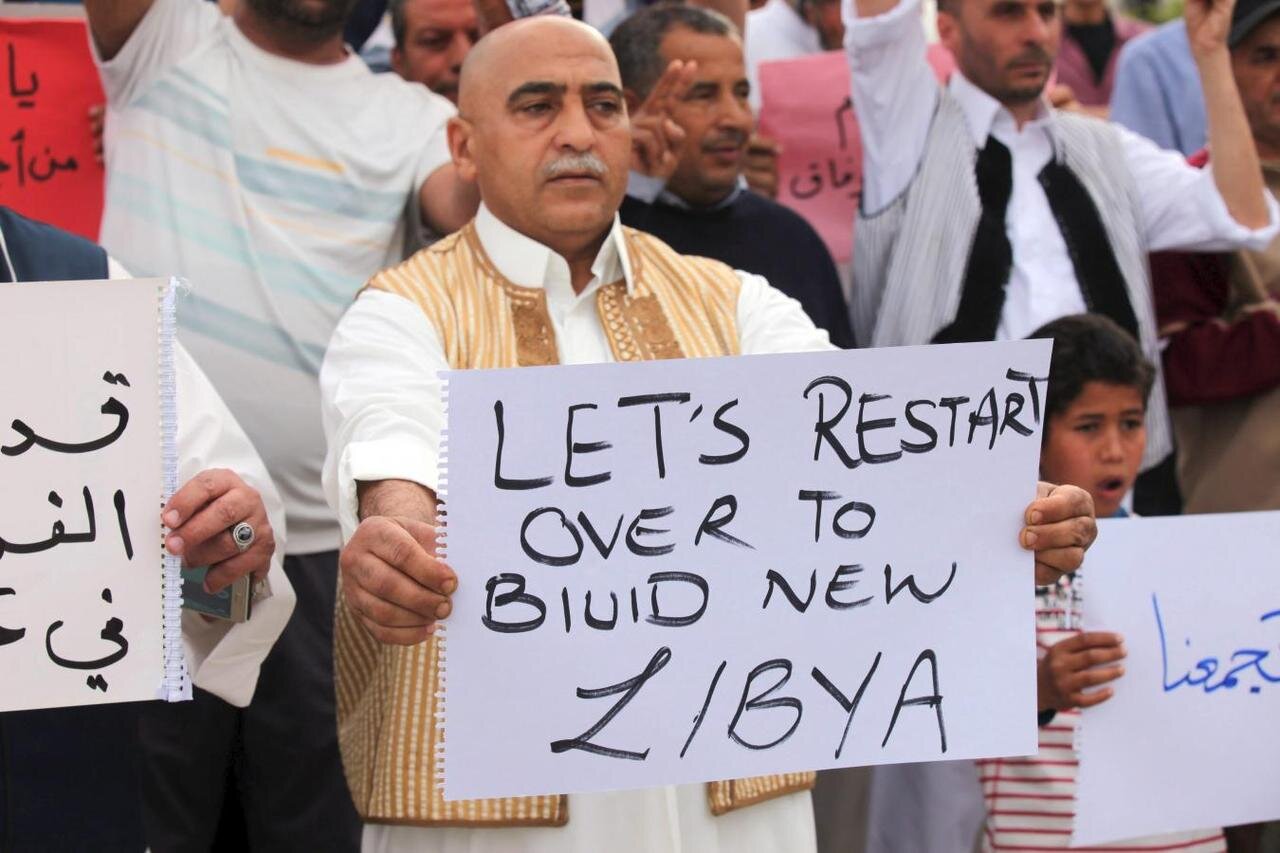The Great Game
A decade on from the February 17th revolution, how the global disorder transformed Libya into a battleground for interest, ideology and influence.
The Libyan Political Agreement at Five Years: From Skhirat to Tunis
Five years after the Libyan Political Agreement was signed in Skhirat, Morocco, Libya is at a crossroads in its polarising civil war. Noamane Cherkaoui analyses the peace process’ journey from Skhirat to Tunis, focusing on the role of Maghreb powers, the fragile state of affairs, and the prospects of conflict relapse.
Libya’s Political Culture Wars
The announcement of UN-brokered permanent ceasefire in Geneva and political talks in Tunisia has given renewed optimism that Libya’s elusive peace attempts are yet again within close grasp. The critical challenge to all peace-building efforts in Libya since the fall of Qaddafi has centred around correctly identifying the root causes and drivers of these conflicts, in order to design a peace process that addresses and resolves these issues between the key actors in the conflict.
Libya and the COVID-19 Lifecycle: From Distraction to Dissidence
COVID-19 has changed the world and the way we live it, establishing something of a “new normal” as states and societies battle the pandemic and learn to accommodate its multidimensional effects. For Libyans’ living in the midst of conflict, normality and a new normal are difficult to determine.
Beyond the Ceasefire in Libya
Publicly committing to a ceasefire is a positive development, but many details still need to be resolved with active U.S. support, especially security arrangements in central Libya and the speedy resumption of oil exports.
Libya’s other War
How can the deeply embedded corruption in Libya be effectively fought in order to carve the path for sustainable stability?
Khalifa Haftar: All Things to all Men?
Western policy opinion has been split regarding the recent events regarding a set of conflicting political and military objectives in Libya which propelled the retired military general Khalifa Hifter back to the international stage.
Libya’s Constitutional Assembly
Organisational First Steps of laying foundational rules to guide constitutional drafting.
Al-Qaeda’s Strategy Evolves in Libya
The potential impact of Al Qaida’s actions in Libya could massively alter the Libyan political landscape.
A Working Plan: Libya’s Constitutional Assembly
Libya’s capability to resolve rifts and create consensus through constructive and democratic means is at test. Will the countries political leaders learn from mistakes made int the past to create a by the Libyans recognised constitution?
Libya’s Bloody Ramadan
Post-revolutionary growing number of assassinations and targeted attacks meet massive protests of Libyans.
In Libya, Militias Rule
Militias uncontrollable behaviour in Libya threatened the countries long-term diplomatic prospects.
Libya’s Security Situtation
Understanding Libya’s current security situation with its various cultural, social and political factors on the countries strive for good governance.
How can Libya achieve “Good Governance”
The GNC’s actions will set important precedents, defining the developmental direction and overarching culture that the future Libyan state and society will develop.
Analysis of Legislation No. 13 2013
The application of the Political Isolation Law raises serious questions about Libya’s transition into democracy.
Analysis of Legislation No. 13 2013
The Constitutional Amendment passed on 7th April, protecting the law from supreme court review and removing the judiciaries powers to hear constitutional challenges against it, heightened concerns about the development in Libya.
Information, Participation and Reputation
The GNC and the role of communication in it’s struggle to stay relevant to the Libyan society and democratic development.
Islamism and the Libyan Elections
What impact would the success of Mahmud Jebril’s National Forces Alliance (NFA at the Libyan elections have on nature of the constitution in Libya? And what effect will it have on the role of Islamism in Libyan politics?
A Health Policy Assessment in Post-Conflict Libya
A new discussion about the health sector in post-conflict Libya – one regarding strategic, bureaucratic and mismanagement issues in the health sector.
Security Service Reform in Libya
Security service reform as a means to achieving the long-term goals through transitional justice, and the immediate goals of demobilisation, disarmament and reintegration?




















